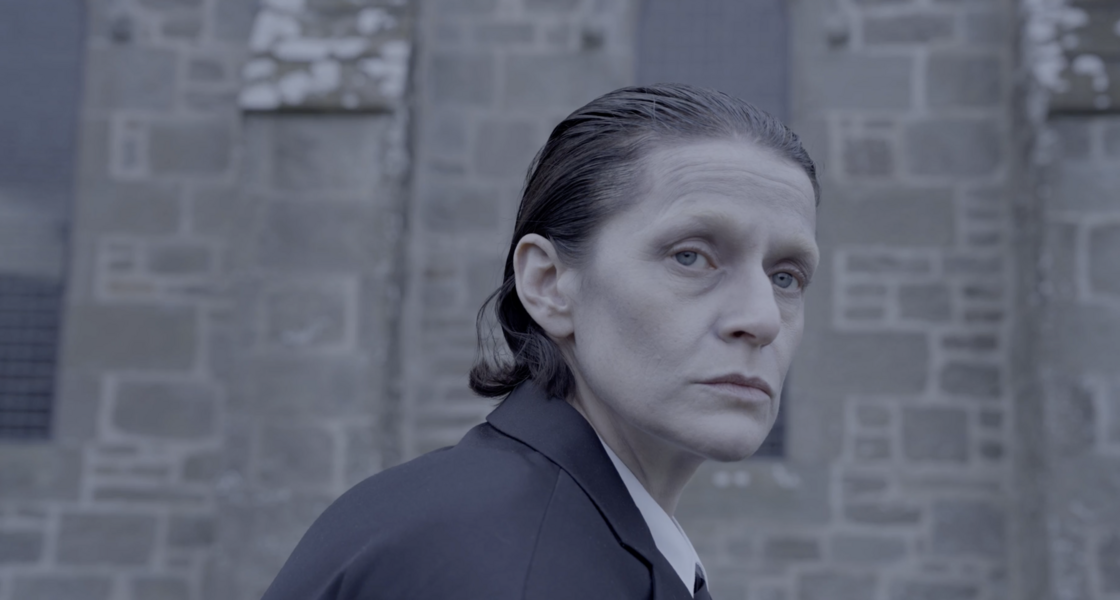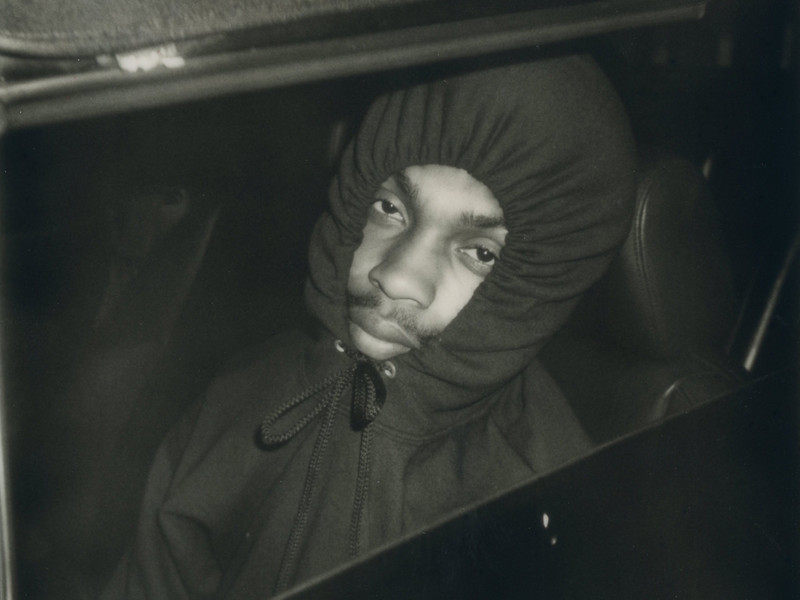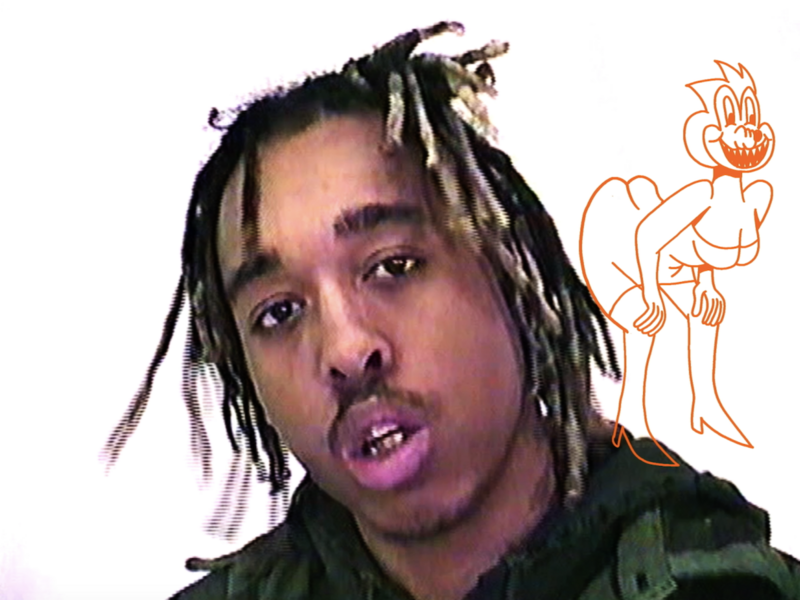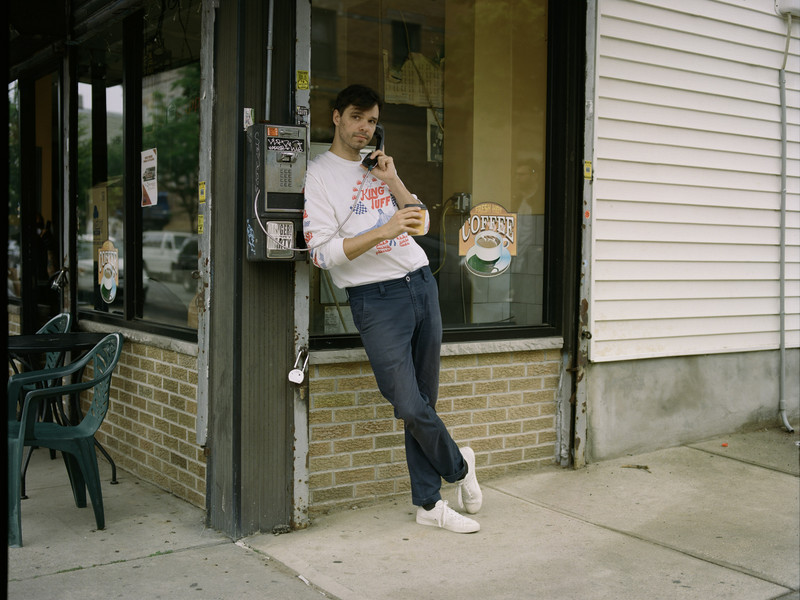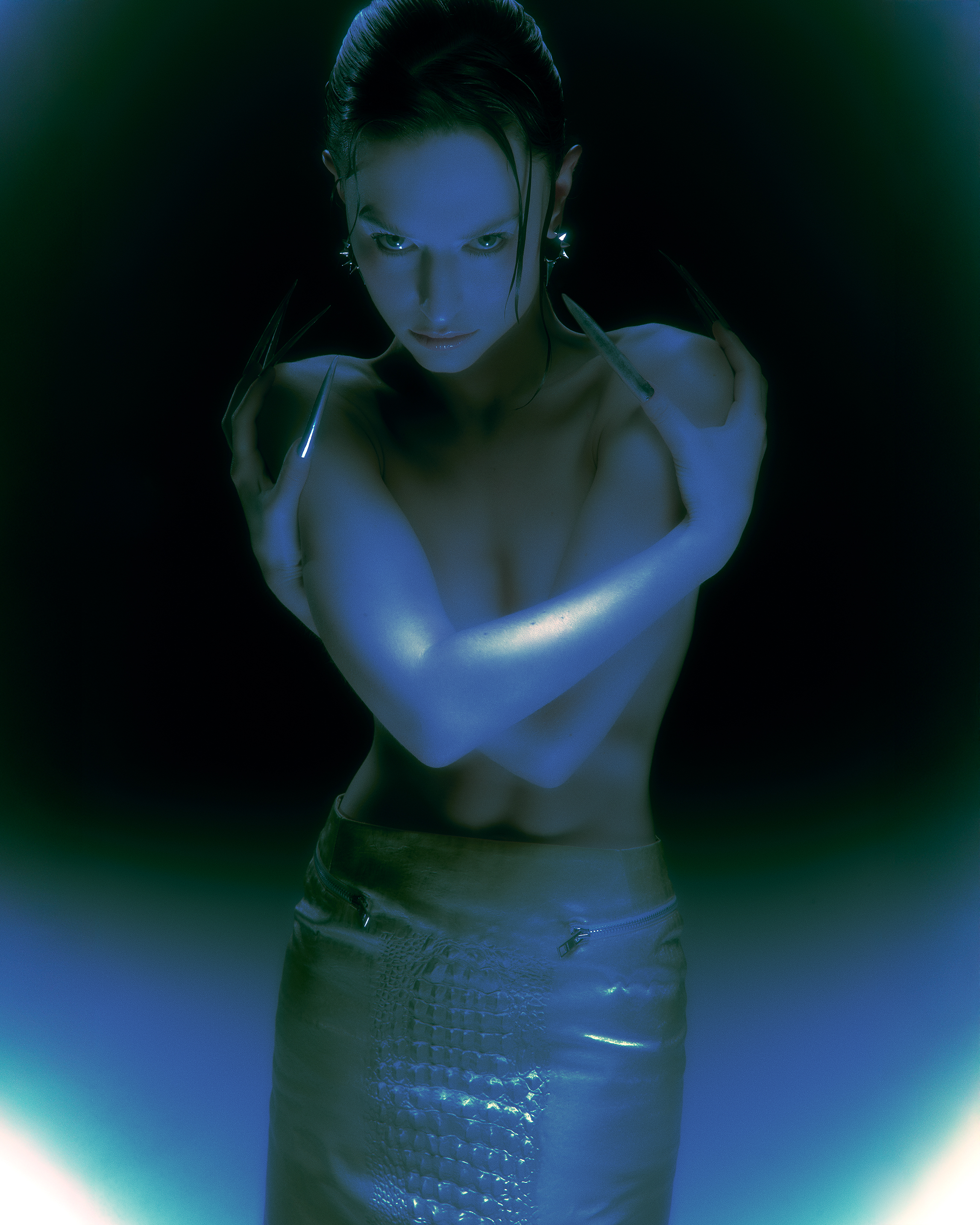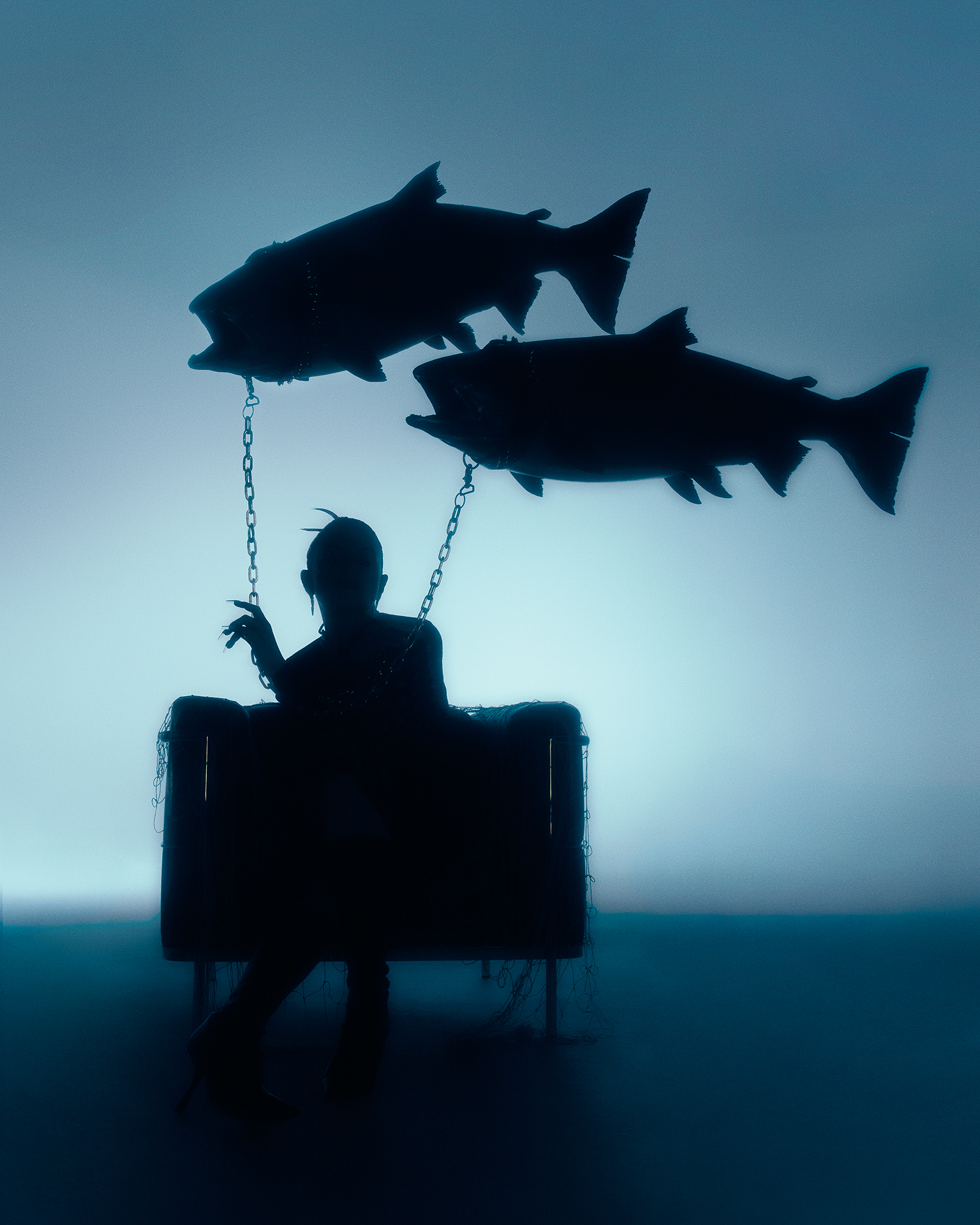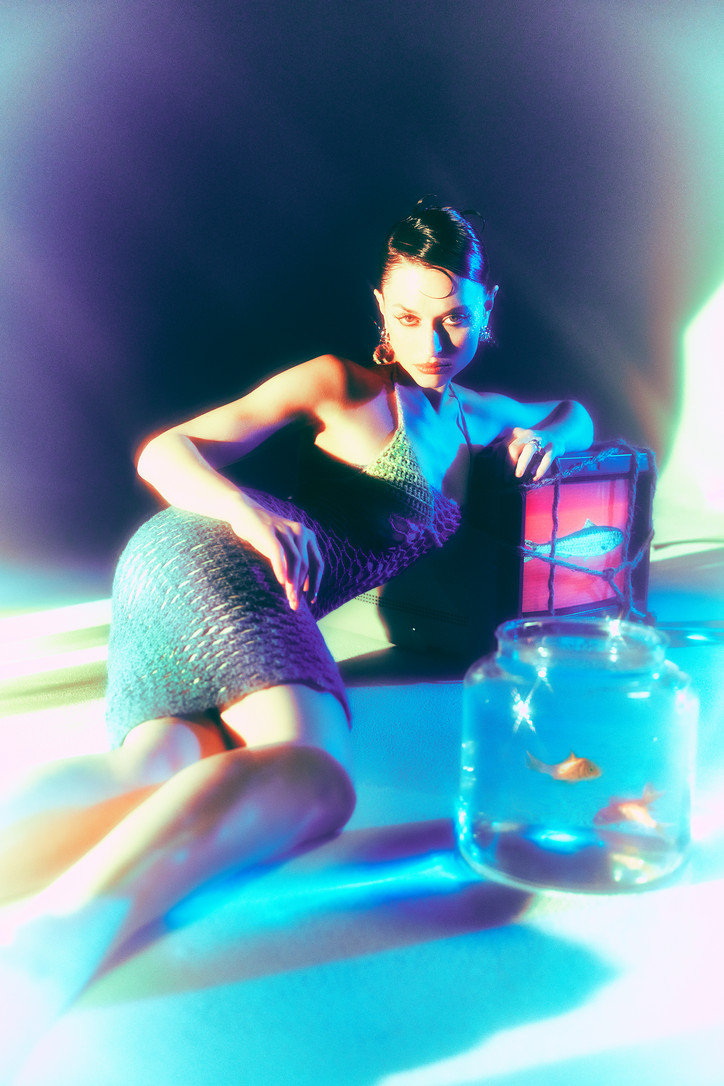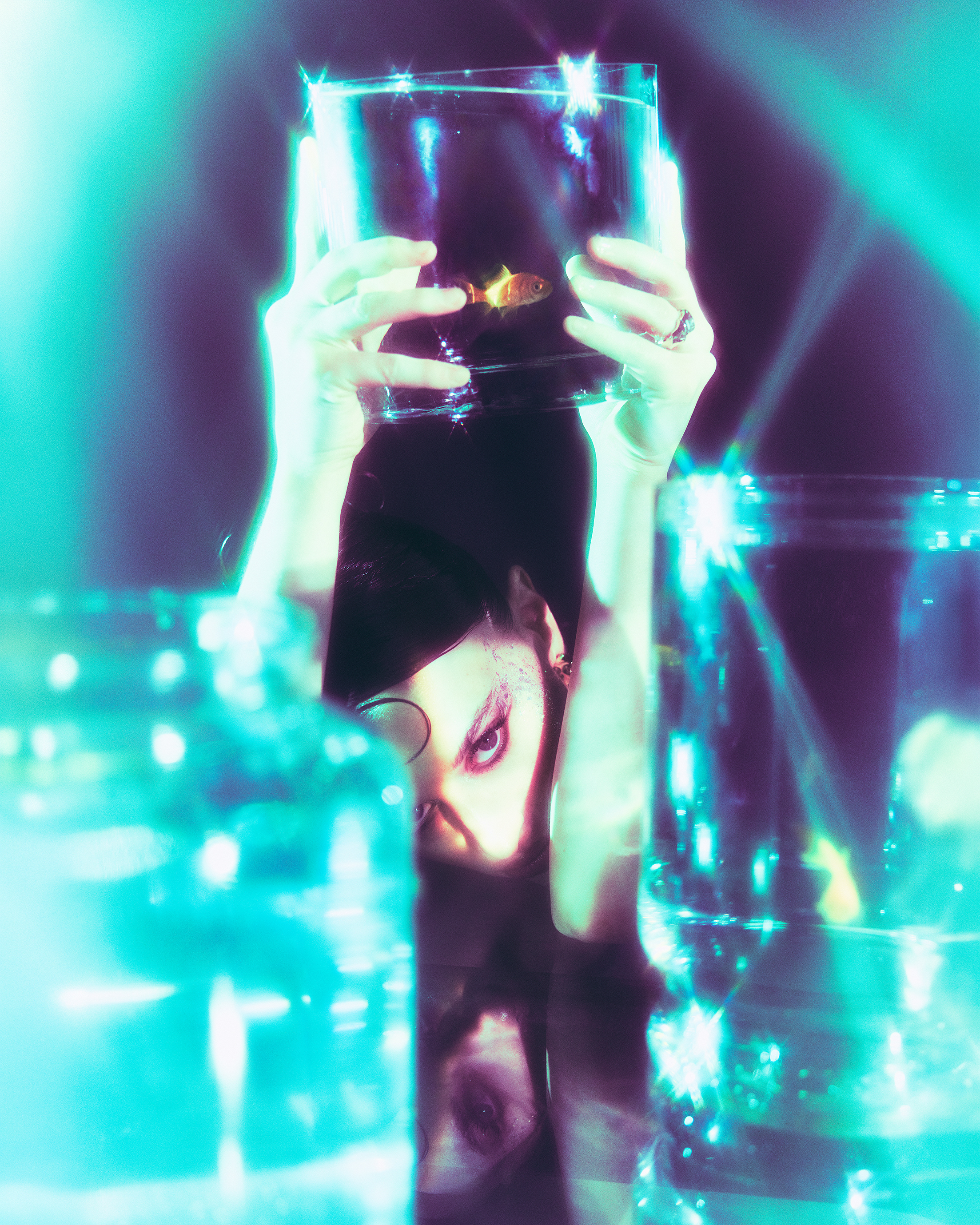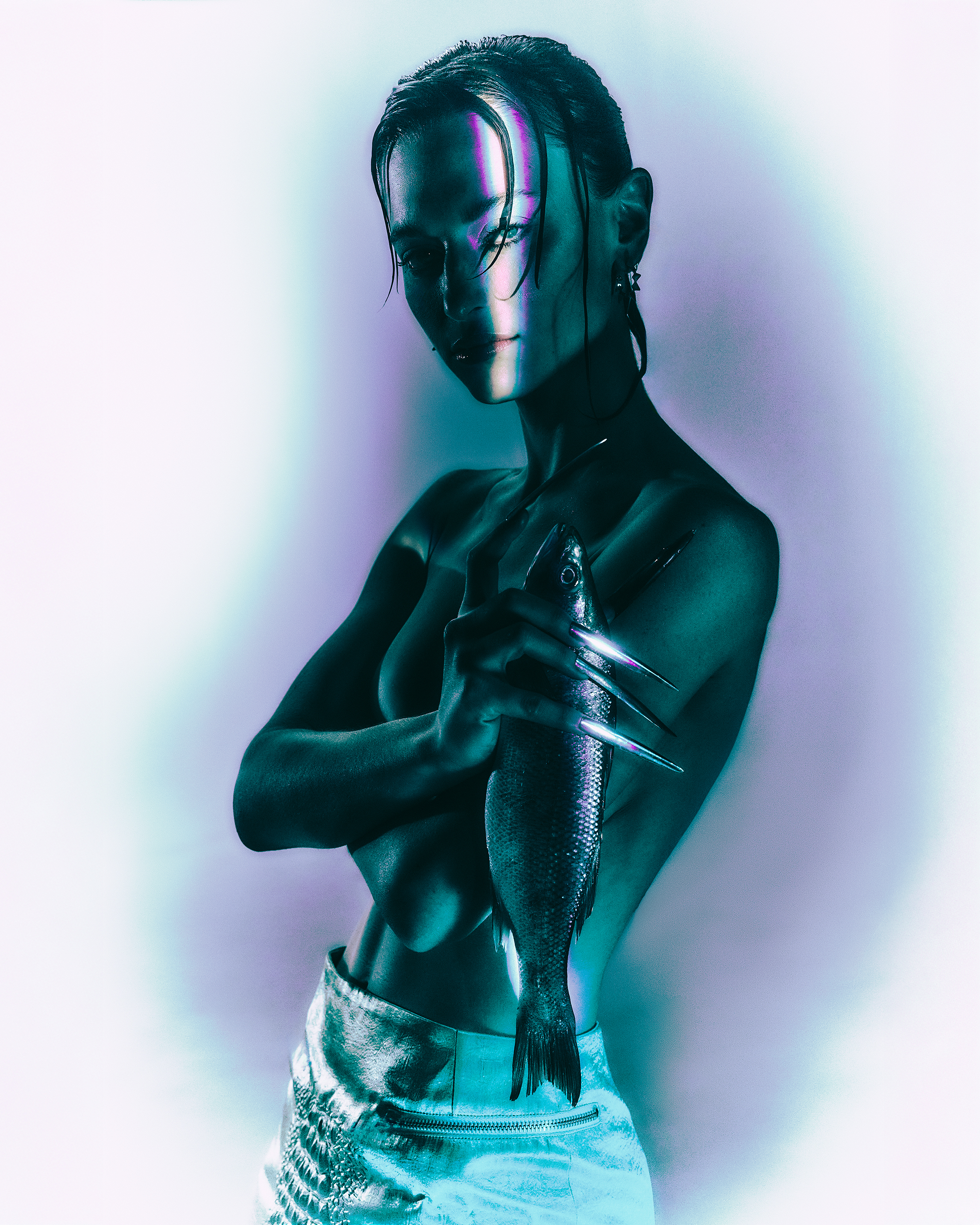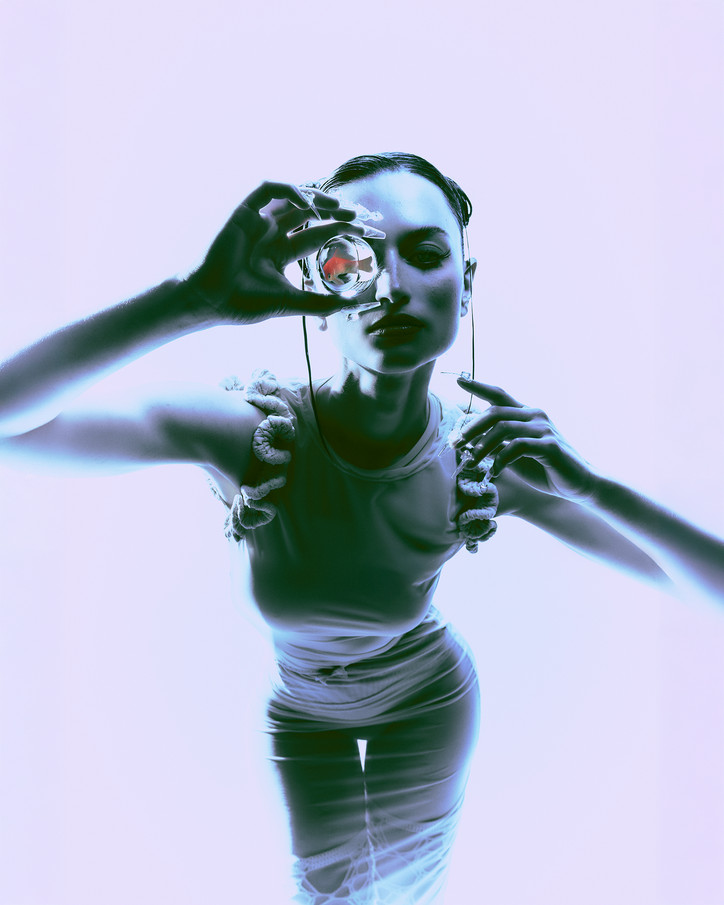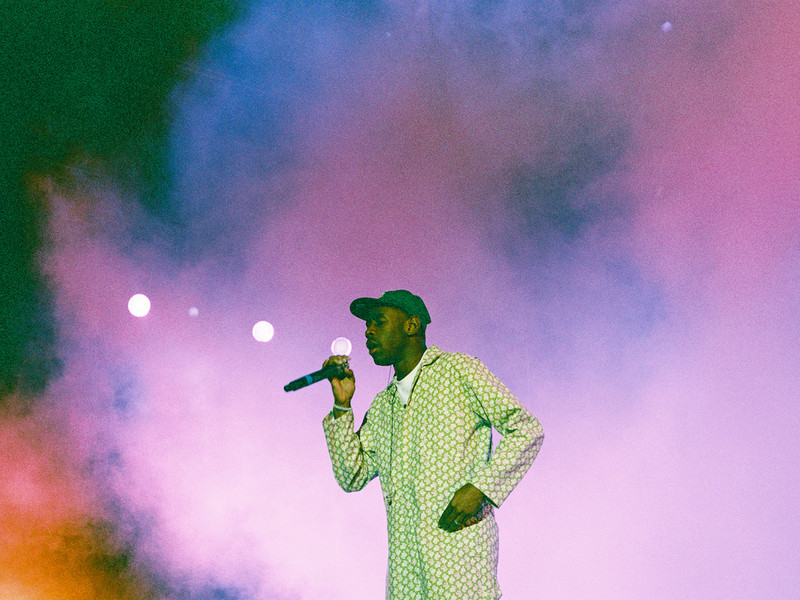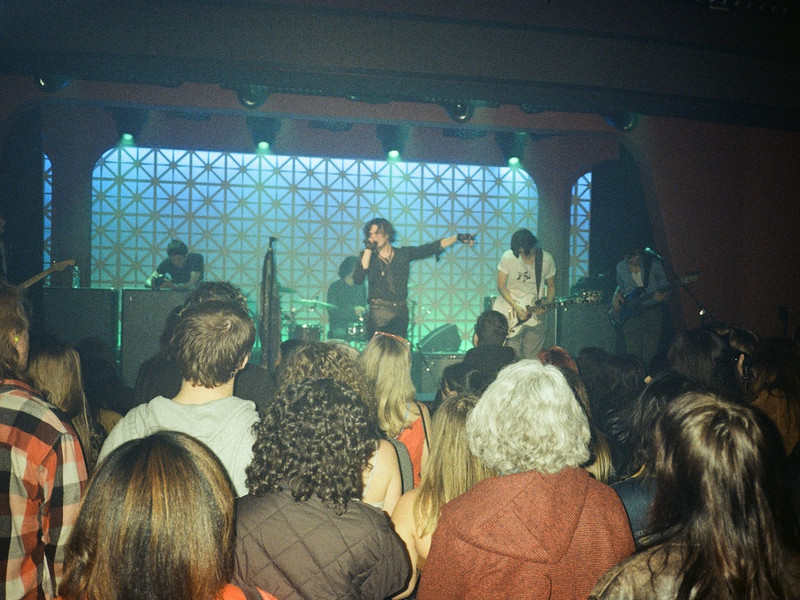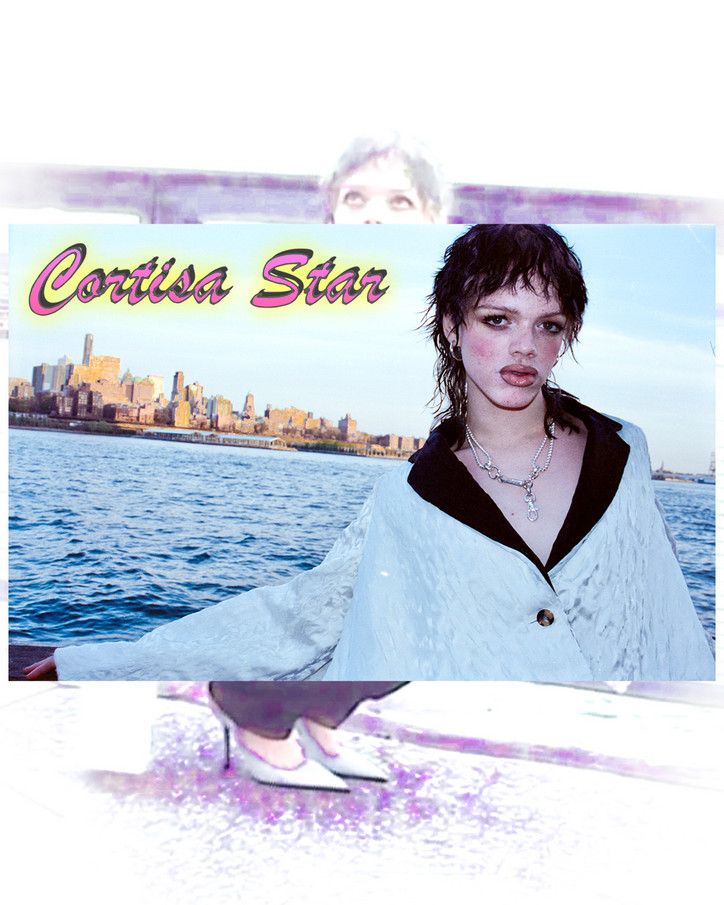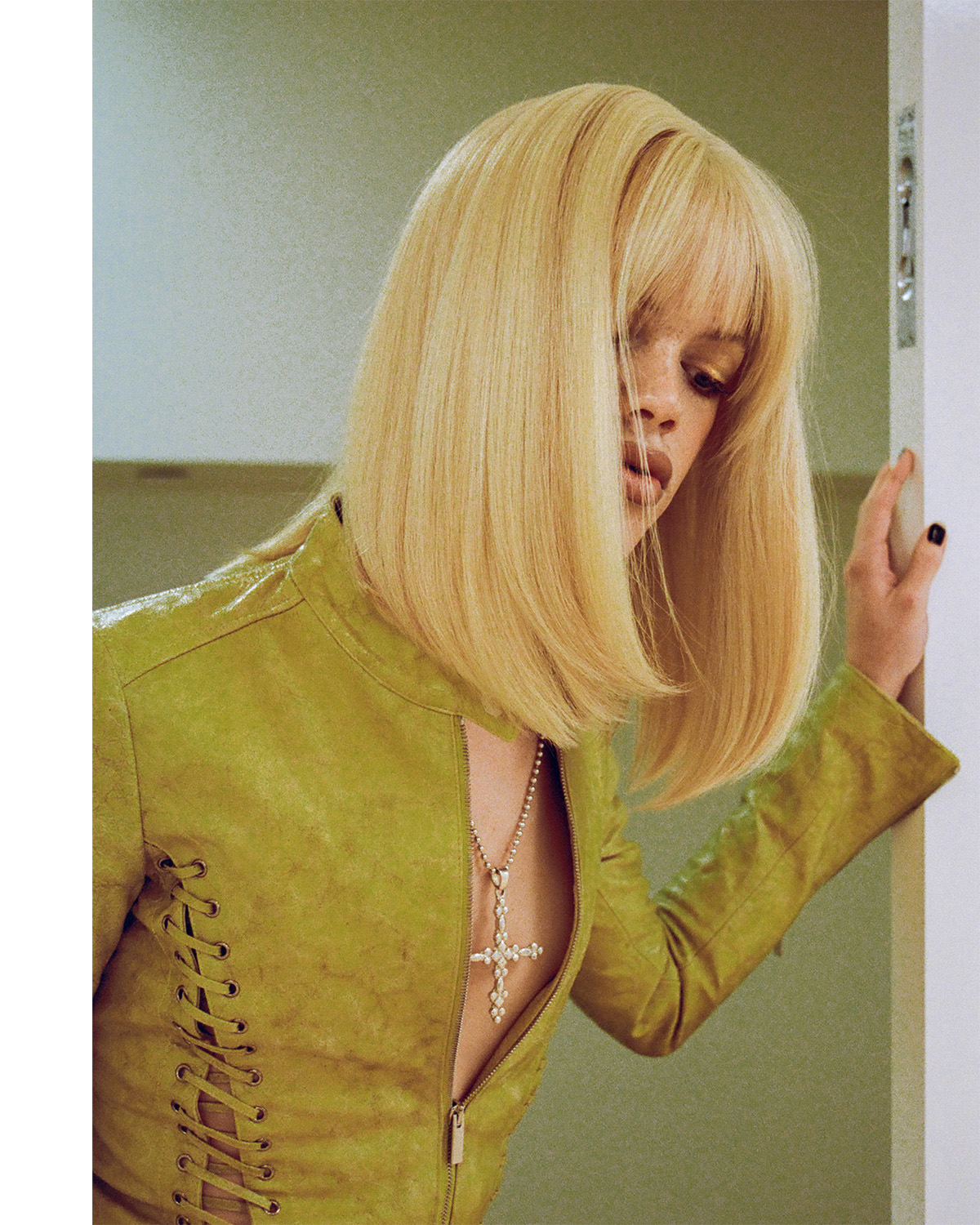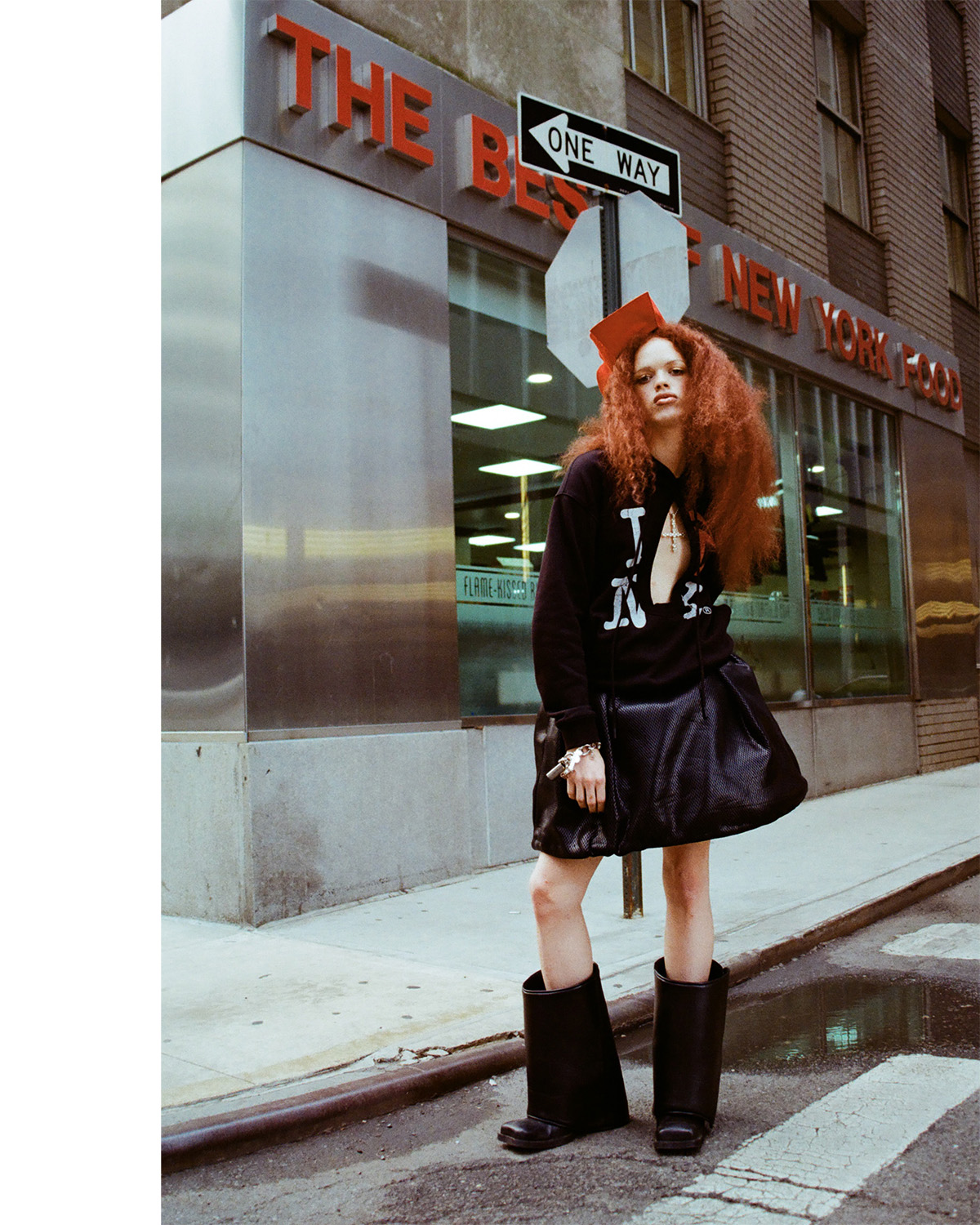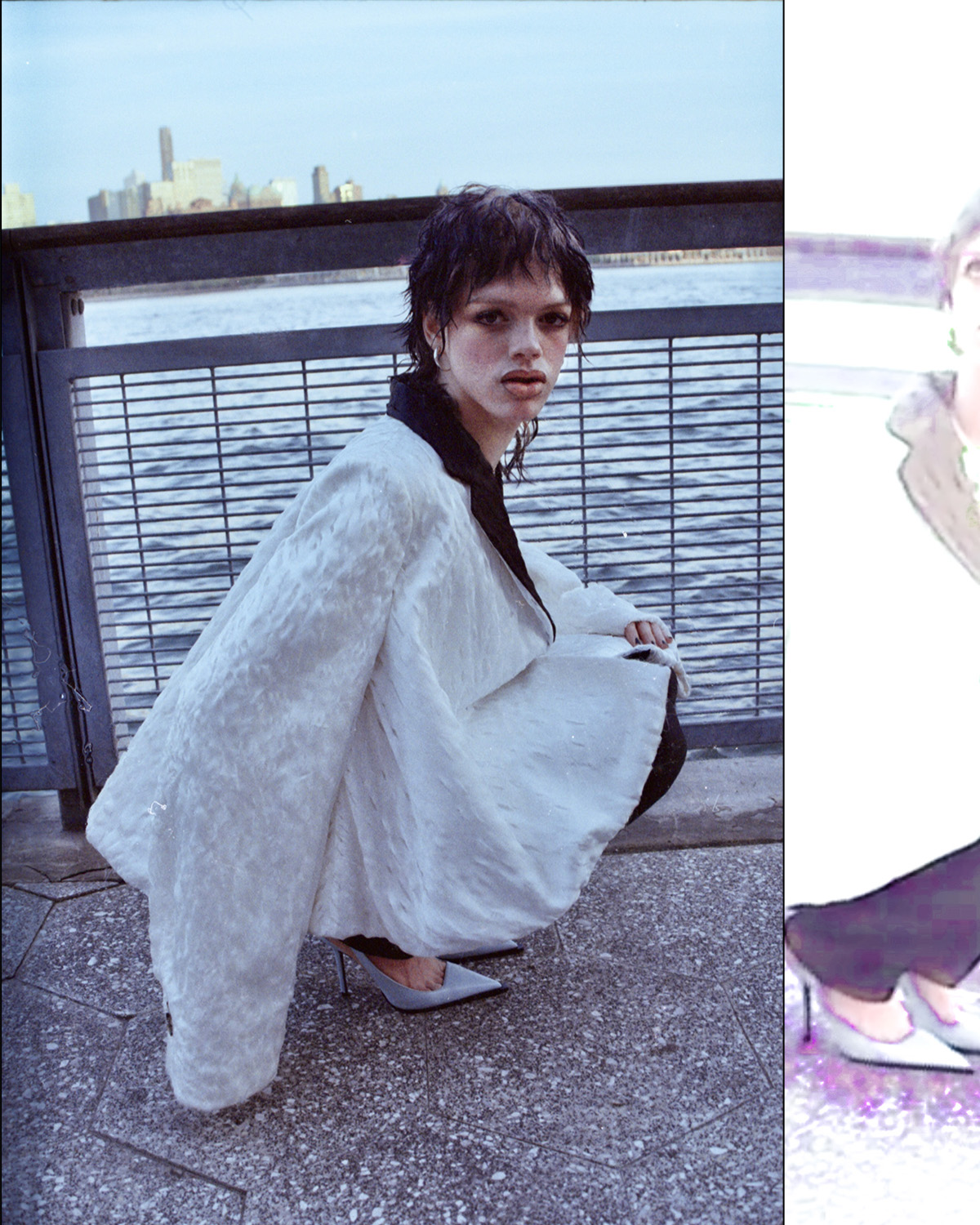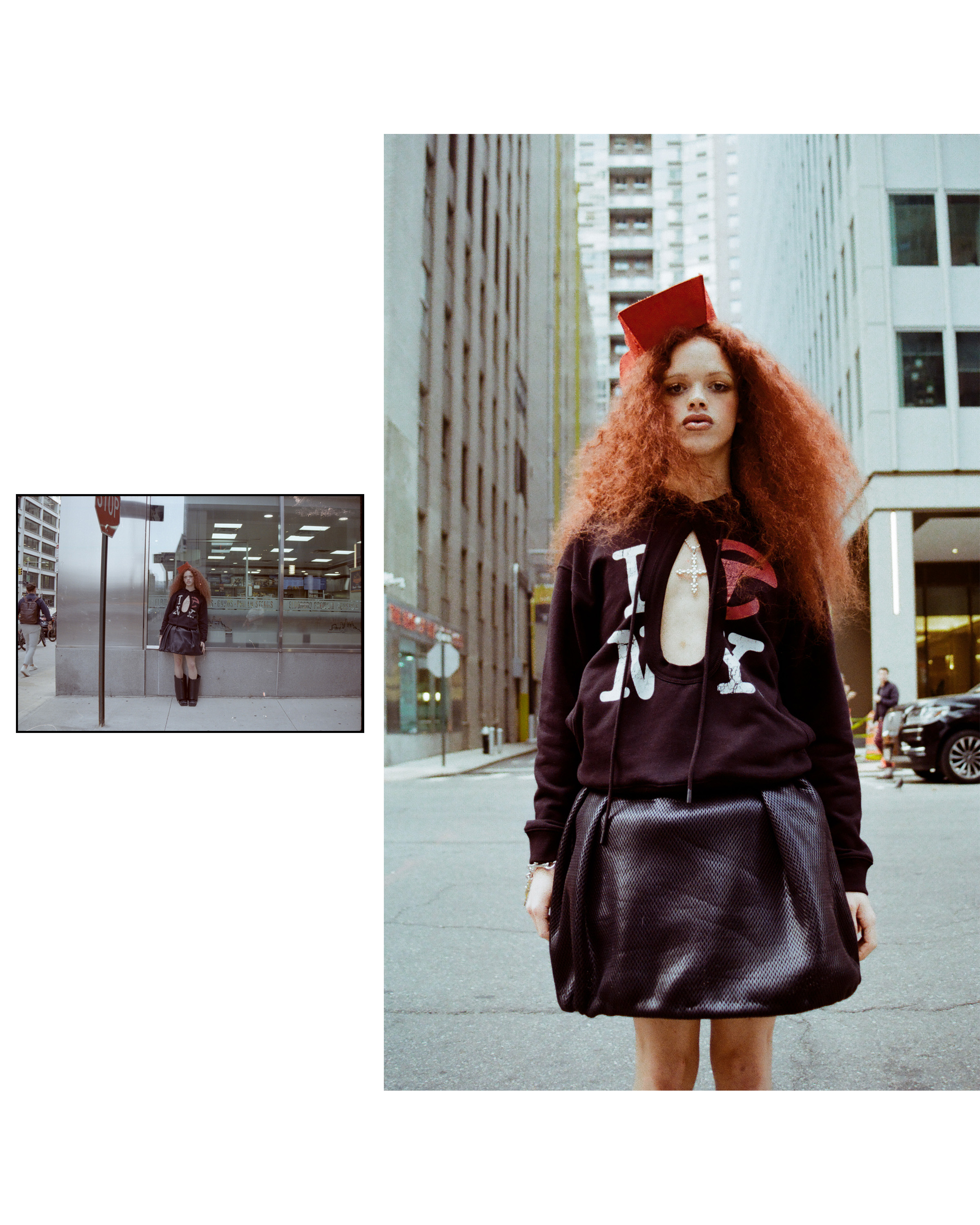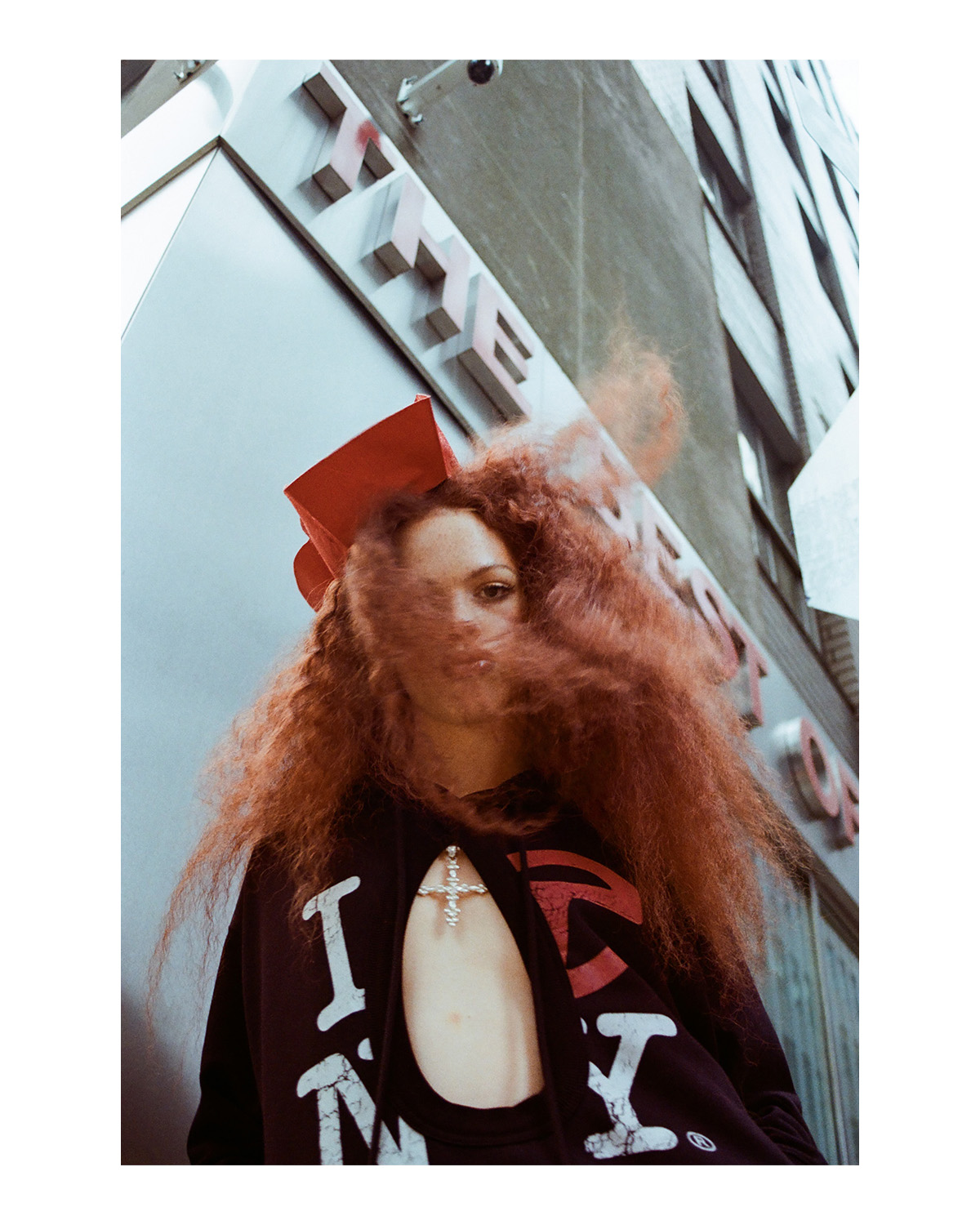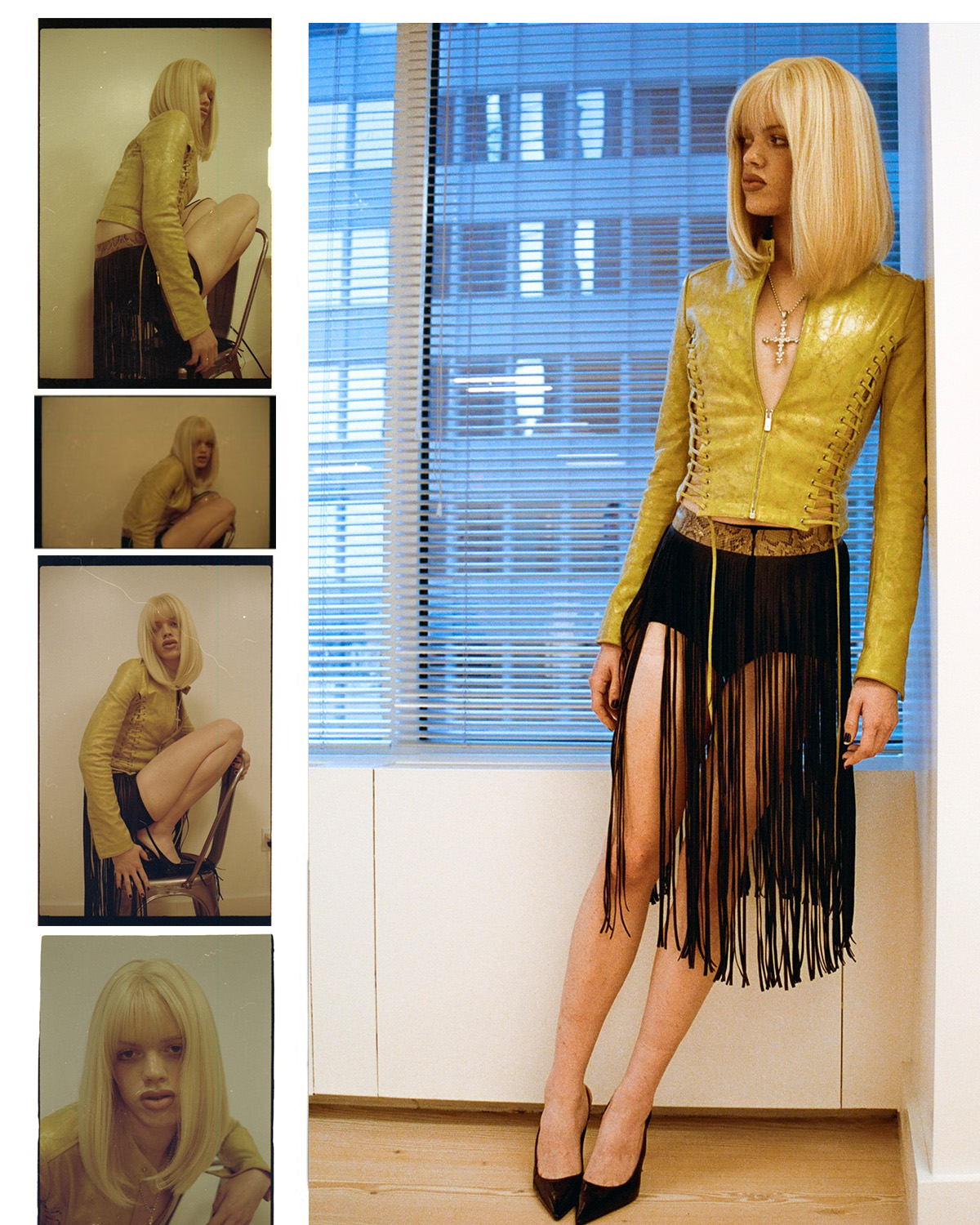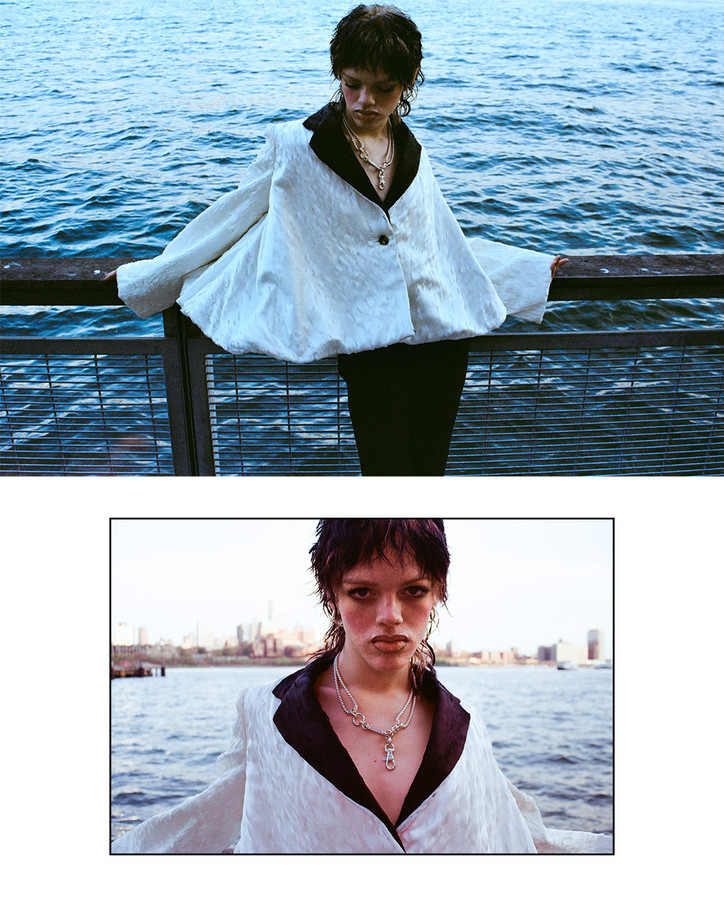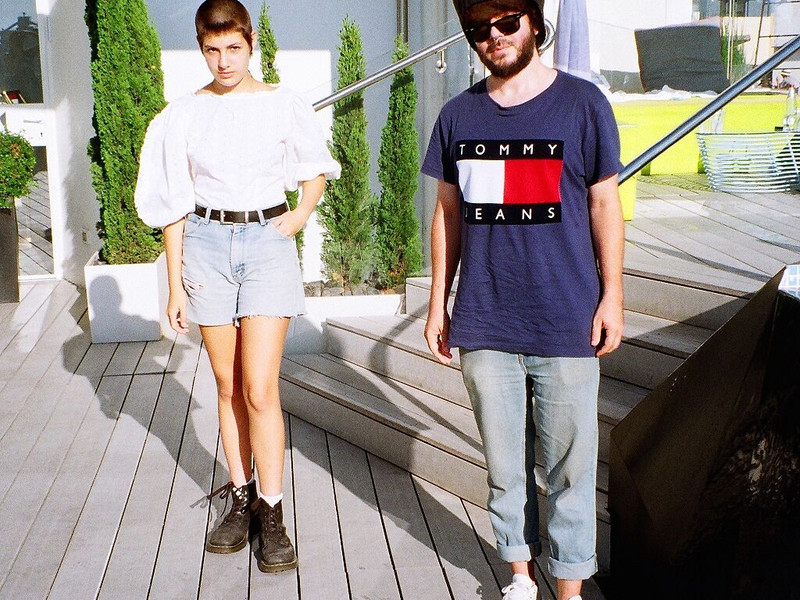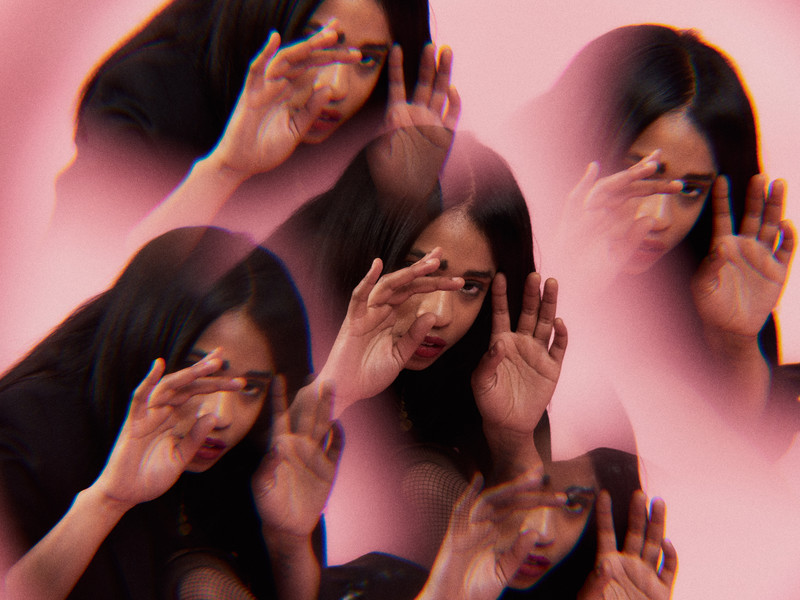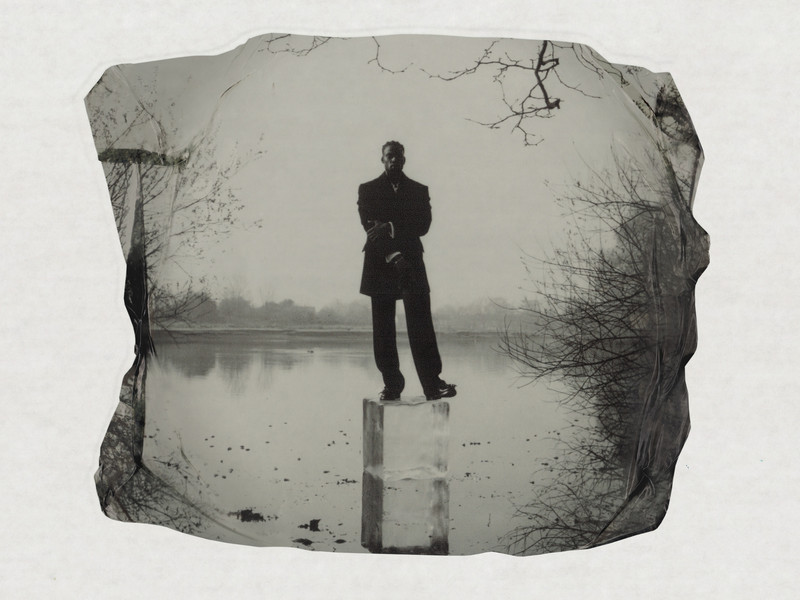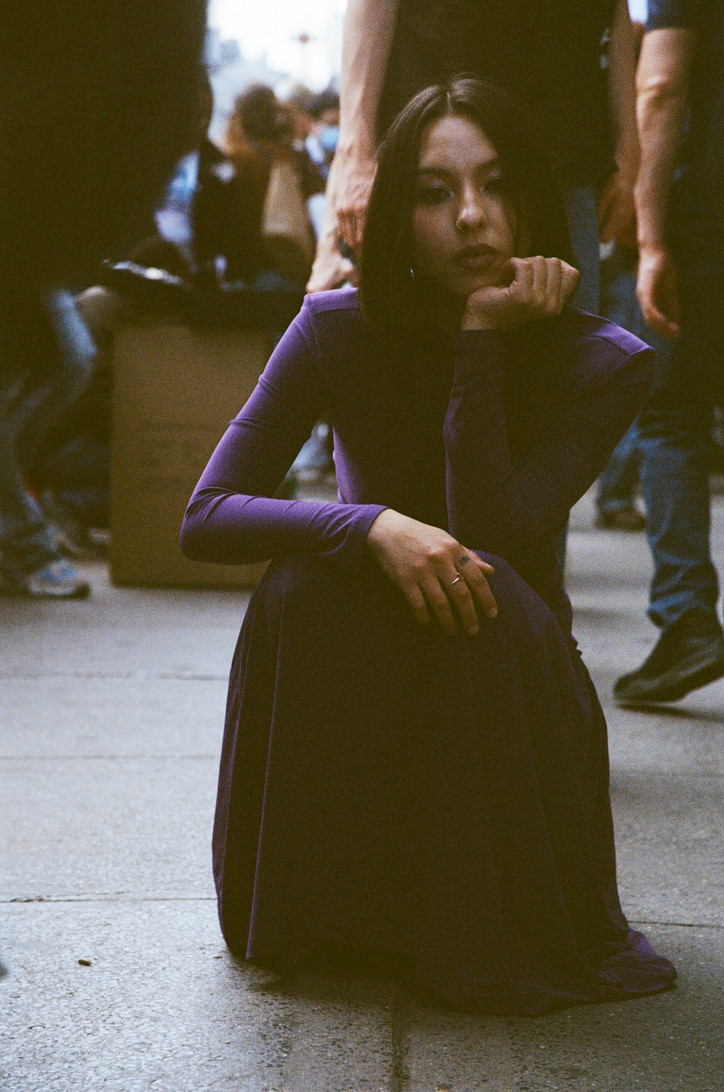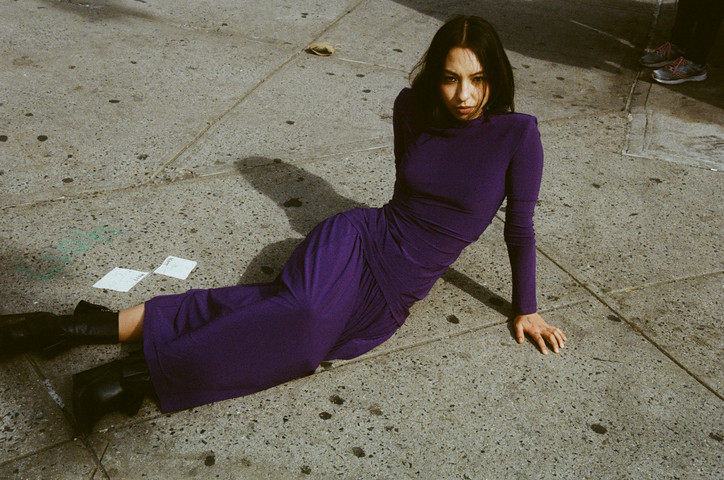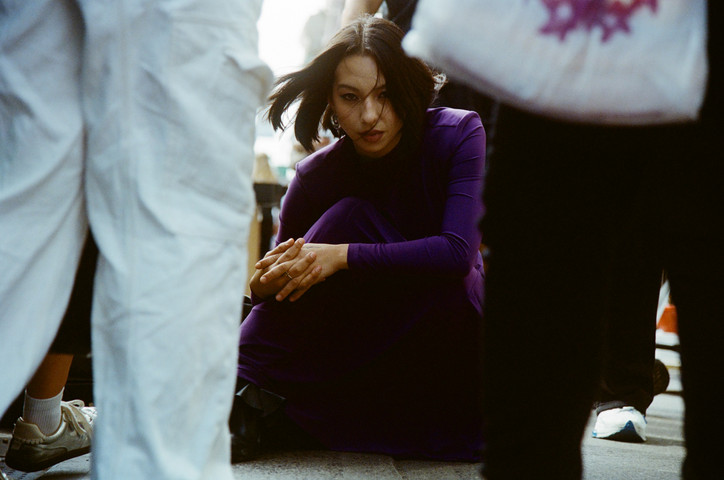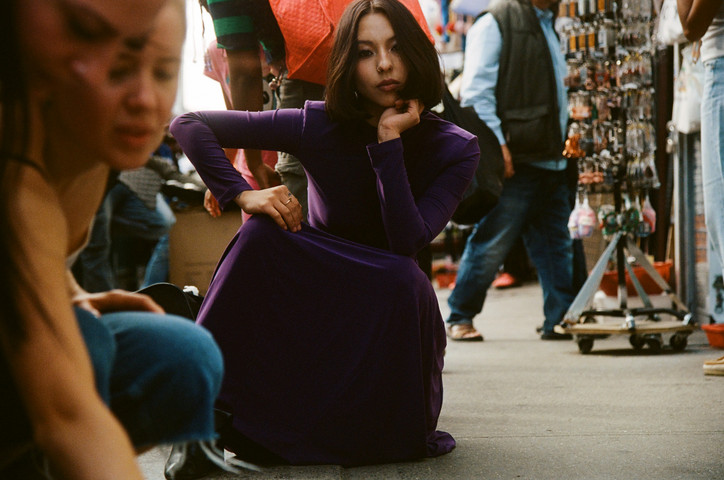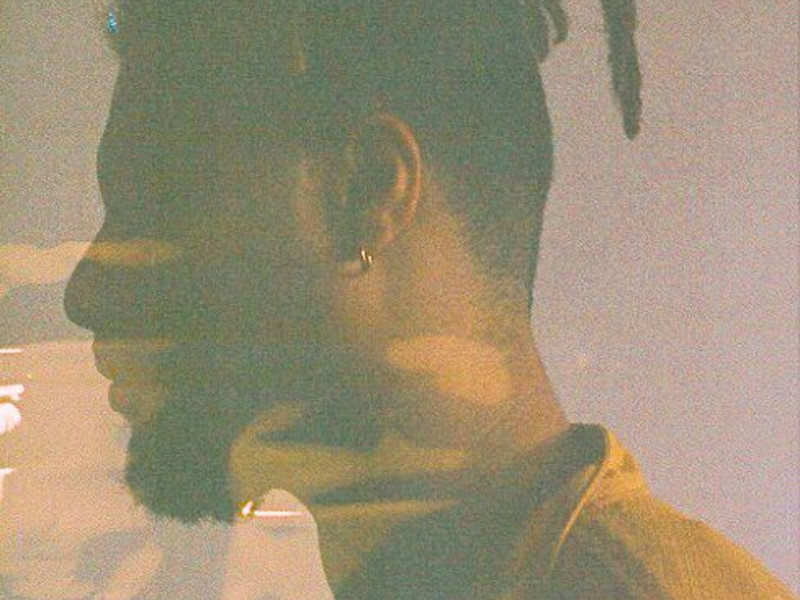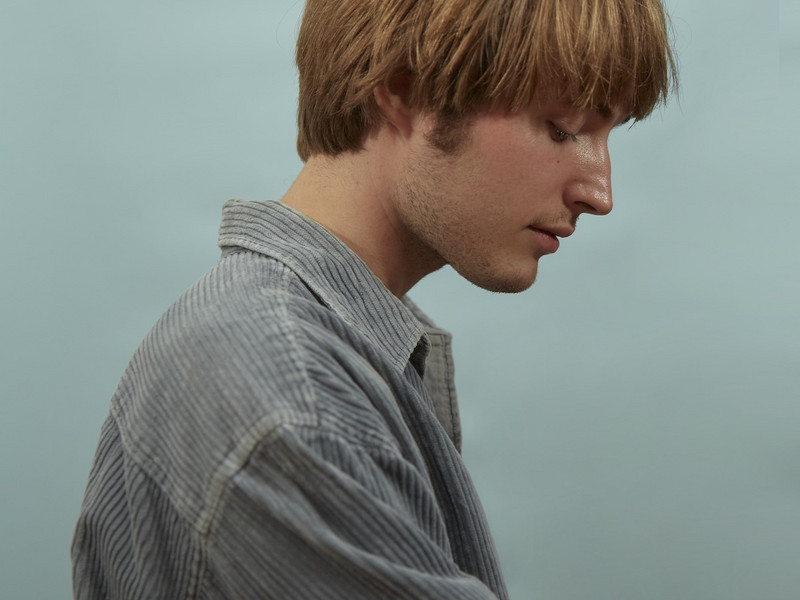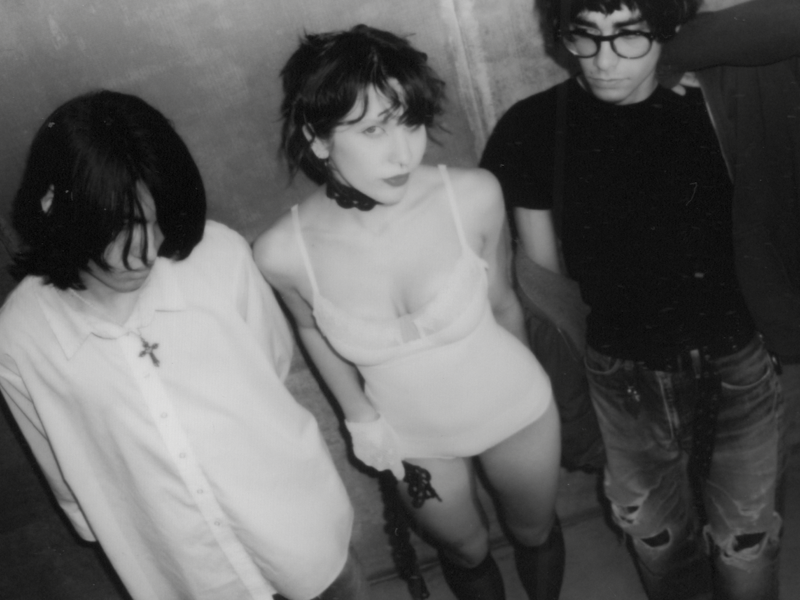El Perro Del Mar Negotiates With Nothingness
On that foreign beach in Spain, El Perro Del Mar was born — the alter ego of Sarah Assbring, dark, dynamic, and a liberating enigma that has spanned over two decades. This artistic endeavor has carried her to international recognition through world tours and, as of February 16th, 2024, to her eighth studio album — Big Anonymous. However, the artist's personal odyssey, in tandem with El Perro Del Mar, might be considered an even greater feat.
Assbring exists in an industry which no longer seems to cater exclusively to her kind of venture. I prefer not to simply label her among other musicians. It's not that her craft doesn't embody music, but rather because — in an era broadening not just who can create but how creation is perceived — her sonic landscape transcends the confines of traditional music.
To make music has become an endeavor too worn, the model too depleted, cluttered with empty clickbait titles and transient TikTok tunes — appearances devoid of essence. Assbring's sound, in contrast, is essence embodied. Thus, El Perro del Mar is an artist who, like those creatives truly deserving of the title, sees no form of expression as urgent as their chosen medium. For Assbring, that medium is her soundscape.
With Big Anonymous, an album of ten tracks originally composed for a performance at Stockholm's Royal Dramatic Theatre, she extends an invitation to us. Not merely into the realm of El Perro Del Mar, nor solely into the world of Sarah Assbring, but into the depths of ourselves. Through "dialogues with the dead," reflections on morality and mortality, manifestations of guilt and grief, and searches for harmony and honesty, she hands us the keys to our own internal portal. But she won't open it for us — that task is ours alone to undertake.
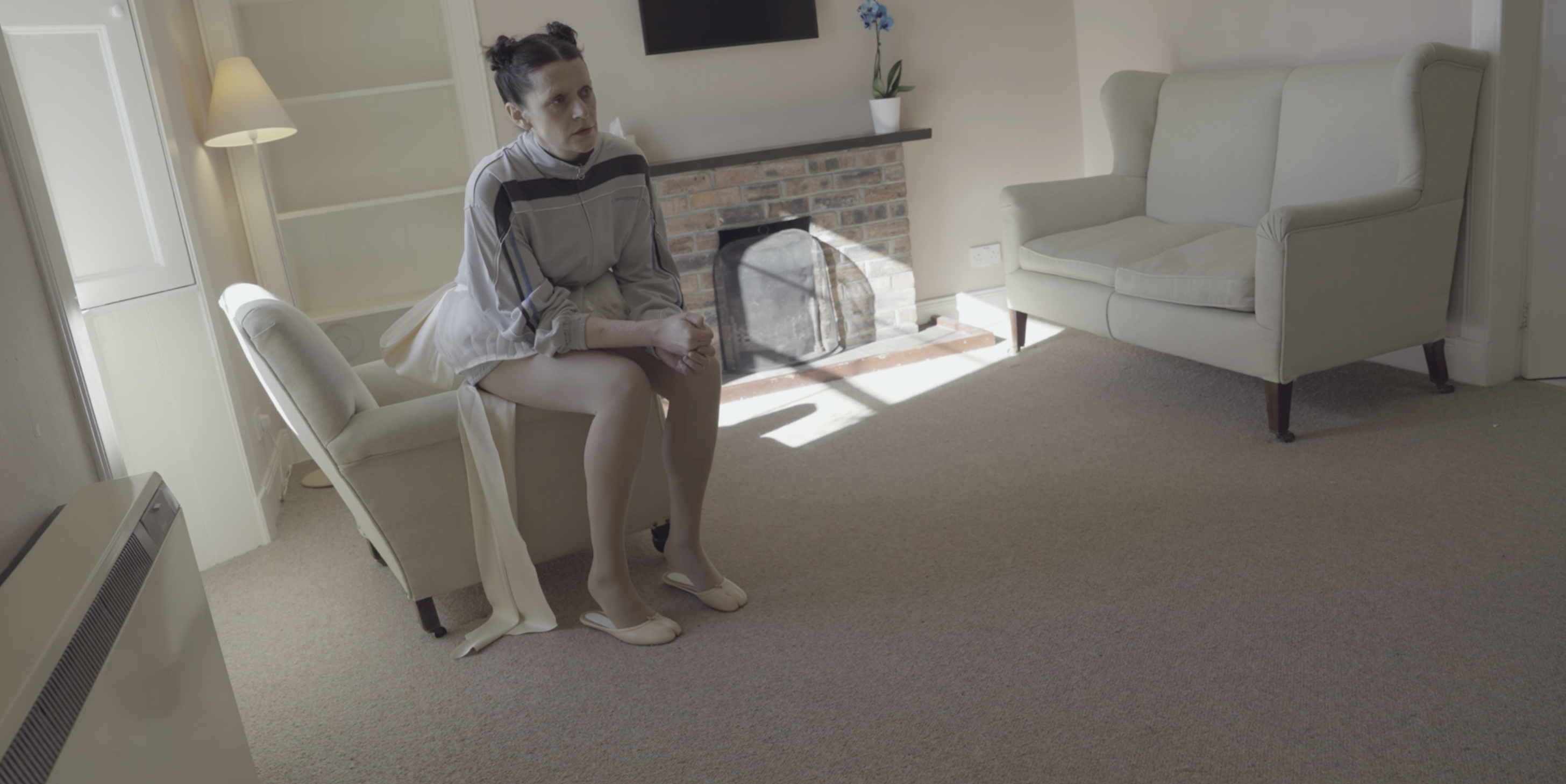
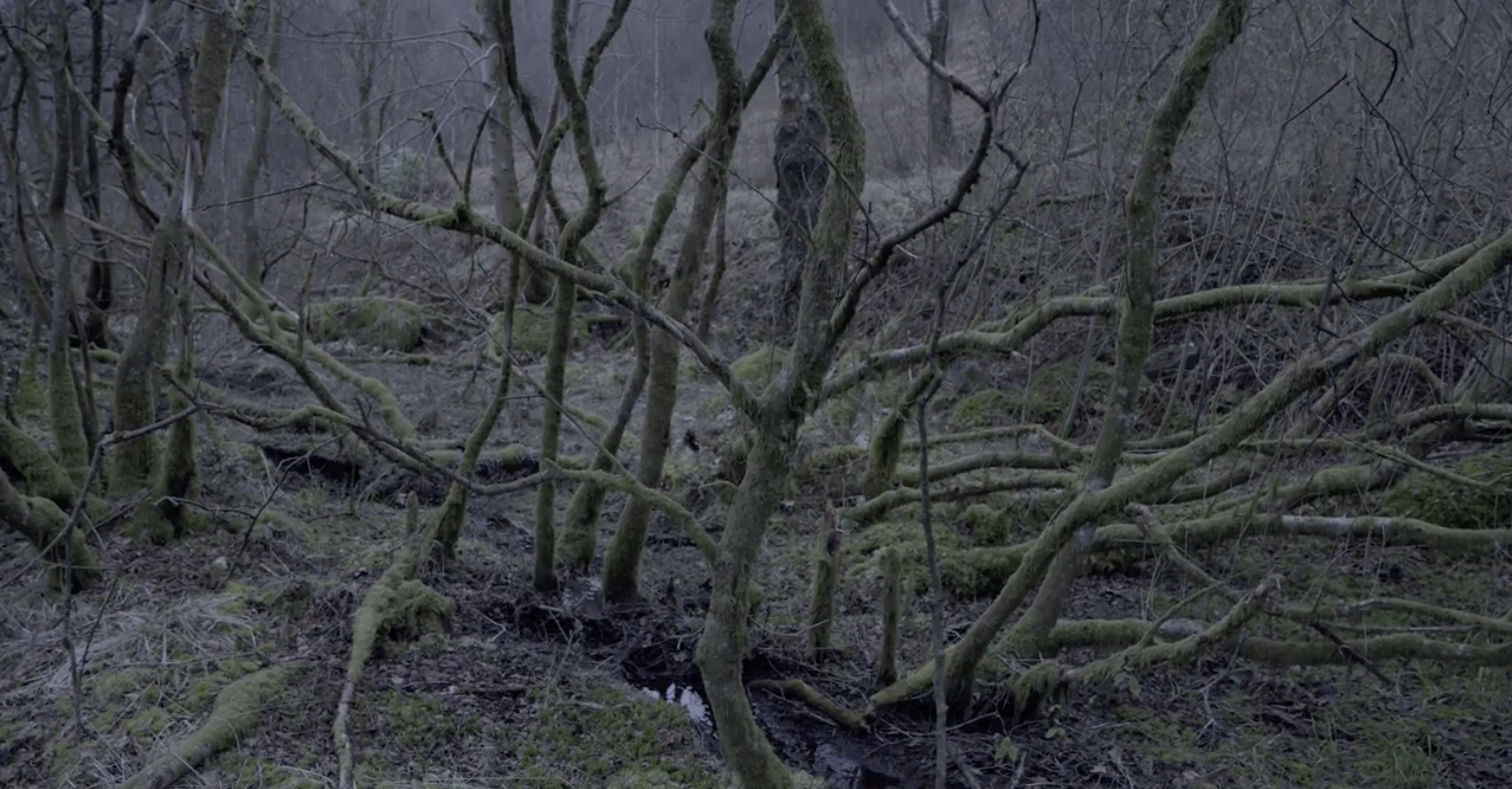
How is Stockholm these days?
Really dark and cold. This winter has been mega bleak.
As all of the Scandinavian winters tend to be…
Right. But for some reason this one has been extra heavy. And schizophrenic.
I’ve been hearing about that, from my grandma. She’s the only one I’m talking to from back home. And the weather is the only thing that's happening in her life. Perhaps the winter feels extra dark this year in regards to the world?
Definitely. You wake up and it's dark outside. You open the newspaper, and suddenly it’s dark inside as well. It’s immersive.
A dark place is a good place to be anonymous, one can lurk in the shadows. Would you tell us about the name of the album – Big Anonymous – if that doesn't completely contradict the concept behind it, expose it, that is…
It’s always about intuition I think, and this title came to me immediately once I started working with the material. Once something finds its way to you so early on in the process, it usually means that it's something you should stay true to.
In regards to the theme of the album itself, it deals with a lot of abstractions — not only death, not only grief, but a plentitude of depths, and so the title is my way of trying to embody everything that goes behind it. Yet it still feels too big to comprehend or put a label on.
I read it as the fear of becoming anonymous after our own passing.
In my experience, it applies equally to the people that I’ve lost — the fact that they’re eventually becoming anonymous, which is such a terrible thing–but also, as you mentioned, when you grasp the fact that eventually death, and therefore anonymity, is coming for you, too.
At the same time, at least outspokenly, a lot of people cry out for “anonymity,” today, wishing there was a way to delete the data. Do you think that “to be anonymous” holds value?
That’s a different type of anonymity. What the album expresses is rather this endless enigma, the “nothing-but” anonymity; the fact that that’s eventually all there is. It’s about existential nothingness, really.
Which can be such a liberating force, too. I mean ask Sartre, he’s the one who told me. Have you made peace with the idea of death?
I have understood that there is no life without death, and thereby, finally, been able to acknowledge that likewise there’s no death without life.
That’s it. Pretty sure you just put the whole soundscape down in words.
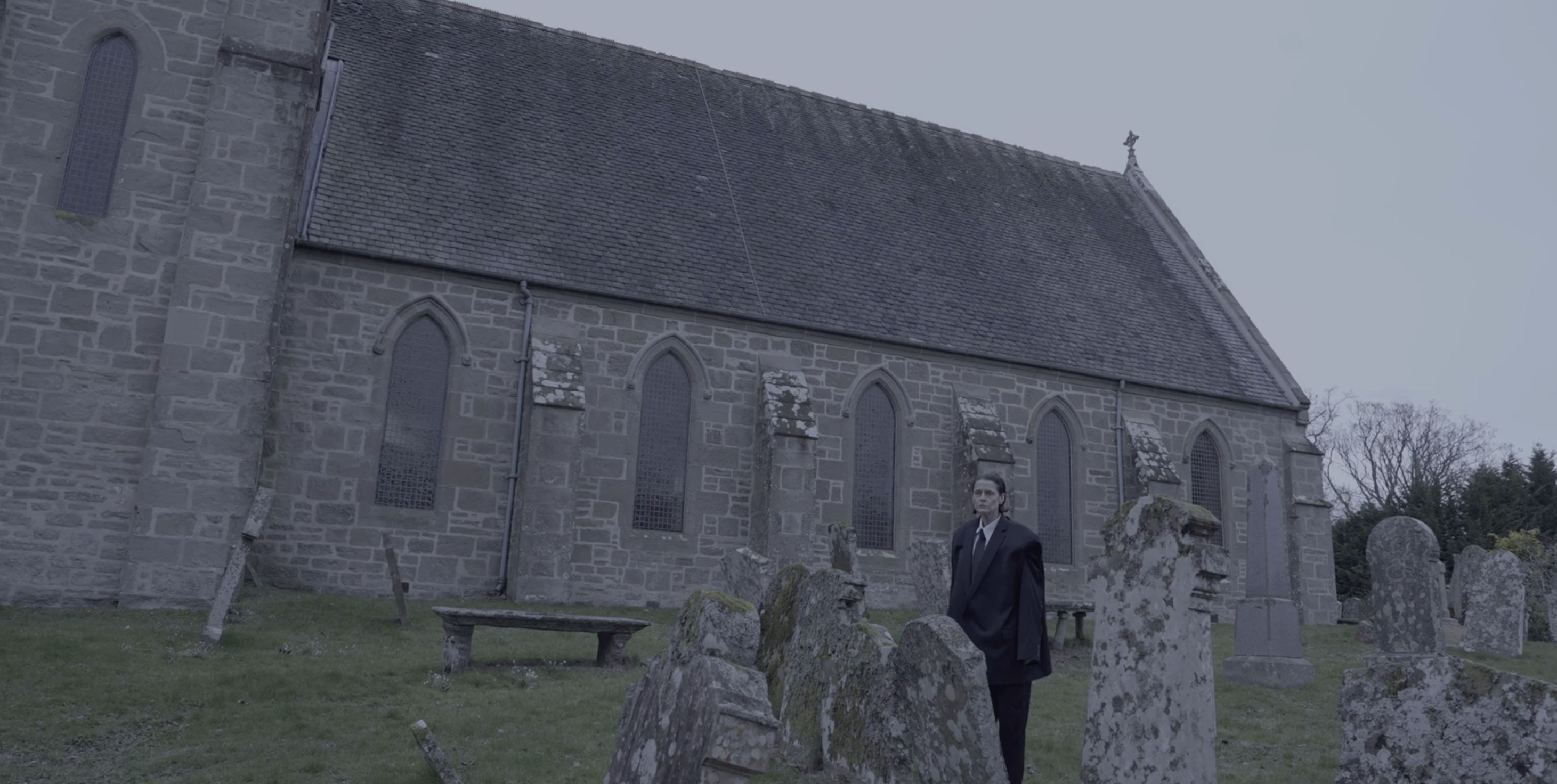

The album, while being very melancholic, simultaneously puts you in such a state of relief. Kiss of Death certainly feels like a good sonic example of such — starts of hunting, terrifying, but when the presence of death finally catches up with you, it's no longer scary, it's not a stab in the back: it's a kiss. Reminiscent of how meaninglessness is being addressed in existential philosophy.
That's a nice note. Doing this album has been such an important journey for me, and Kiss of Death was really the final destination. I was coming to terms with feelings of grief and guilt and fully accepting, almost embracing, my own ceasing. I realized that I can’t change any of the things or traumas I’ve been through, however, I am fully capable of changing my perception and perspective of them.
I have this mark on me, now I choose to see it as something beautiful. I can choose the stance of having loved and having felt love for the people that are now gone. And me remembering them is also proof of love. It boils down to perception–possibly cultural values as well–and rethinking requires that we let go of our fear. We should aim to be brave enough to question what events should be attached to what emotions.
How did you let go of your fear?
Writing this album provided me with a tool, something to carve with. I think of it as poetry, and it’s been a healing process; a way to understand myself on a spectrum I haven’t quite dared to explore before. Until I wrote this album, that is.
On a non-conventional level? It takes some, several detours to realize that even language — what we use to understand our selves — are just generalizations, thus to go deep we need to go beyond words.
That goes for how we’re told to treat or react to death as well. I can only truly speak of the Western, Scandinavian perspective, where we really have furthered ourselves from the idea of death. That creates some tangled agonies, some of which probably won’t come back to haunt you until later in life, which seems fine, but later, once they do, we’re not sure what they are or how to deal with them. It’s weird. But that's what and why I want to talk about–what I would like this album to navigate through–emotions of grief, guilt.
That’s a therapeutic approach: the methods of sound. Sound transcends words, and therefore puts us in closer contact with truth, at least according to Nietzsche, or perhaps I’m just damaged by professor Dodd. But let’s talk about guilt for a second, I read that you felt guilty for being alive while others aren’t?
I did. But then I finally asked myself the right questions, even though they came at the wrong time. By writing these “constructed dialogues”, the lyrics, I was able to transcend into a place of being forgiven. It's very frightening to be vulnerable, but once you reach a certain point where you start dreaming about things, having nightmares, waking up to the feeling of being haunted, then you have to deal with what might have felt impossible at first.
I’m not trying to make it sound easy, I mean it's very frightening to be vulnerable, but once you reach a certain point where you start dreaming about things, having nightmares, waking up to the feeling of being haunted, then you have to deal with what might have felt impossible at first.
Looking outside of yourself can really help as well. I mean everybody has, or has had, experiences with “darker,” feelings, whatever that really implies. What I find interesting is how we so rarely touch upon them, it’s like we’re all so afraid that we’re going to bring up bad memories,
“Weigh down the mood?”
— exactly. And so we stop talking about them, pretending like they don’t exist, arguing that “the word is already so heavy,” without realizing that when we suppress these emotions we’re actually adding weight, as opposed to once we dare to talk about them, that's when weight is released. It's almost illogical. But I believe that it’s important to keep asking questions without finding a definite answer.
In short, it's been a very personal intimate journey, but at the same time, it's also been a very social, bonding, experience.
What about that experience? Tell us about what it was like to create music for a performative setting like Dramaten [The Royal Dramatic Theater].
I was freely commissioned, permitted to do whatever I wanted to, and it certainly felt like the right time, and the absolut perfect place. Dramated being a stage for spoken drama, I approached the project as a performance rather than “I’m going to make an album and put on a concert.” So performance became the starting point, which is obviously very different from how I usually create, this allowed the music to go places it never could have reached if it weren't for the idea of stage.
In the studio it's just the microphone and you, what's the main ingredient when you compose for a performance?
Movement, sound, choreography, lyrics–I’m pretty sure I had all of these factors equally considered in my mind, which probably sounds chaotic, but it wasn’t. I felt like I found a very natural place which allowed me to be filterless; the dancers, the stage and the design removed the pressure of me as the vocal point, which made it that much easier. I could be 100% personal and still make it nonpersonal.
The commission opened a different door to what felt like endless opportunities, but I think of the album that came out of it as a very separate thing. The performance was a performance, and the album is an entity in itself, it’s not stage music, even though they’re both rather melancholic.
What about it?
Well, I'm very drawn to melancholy. I think it is a big part of me, always has been, and is always going to be. The type of melancholy that does not leave you feeling low, but leaves you feeling thankful, blessed about having feelings, just emotionally richer. That’s the ambition of the album; to embrace the emotions of life. Saying that out loud makes it sound cheesy…
The quote in itself sounds corny, indeed, but once put in relation to your tracks it becomes something completely different. I think when people want to celebrate life they usually plug in, I don't know, Stayin’ Alive with Bee Gees?
That’s just me. I would never, ever, cheer myself up with “happy music.” It just doesn't work. It's what it is. I'm the kind of person who prefers to watch a horror movie instead of a comedy to make myself feel better.
Because on some level the horror feels more honest?
Because I like to be shaken up a little. Every now and then I tend to go too much, and perhaps too far, into the darkness of existence, and then the horror is a great way for me to wake myself up, to realize “what the fuck! you have this beautiful life, and it's right in front of you, and it's happening right now... and eventually it is going to come to an end, even for you, my dear…”
Better get out there and celebrate. Are you a believer in the afterlife?
I am not.
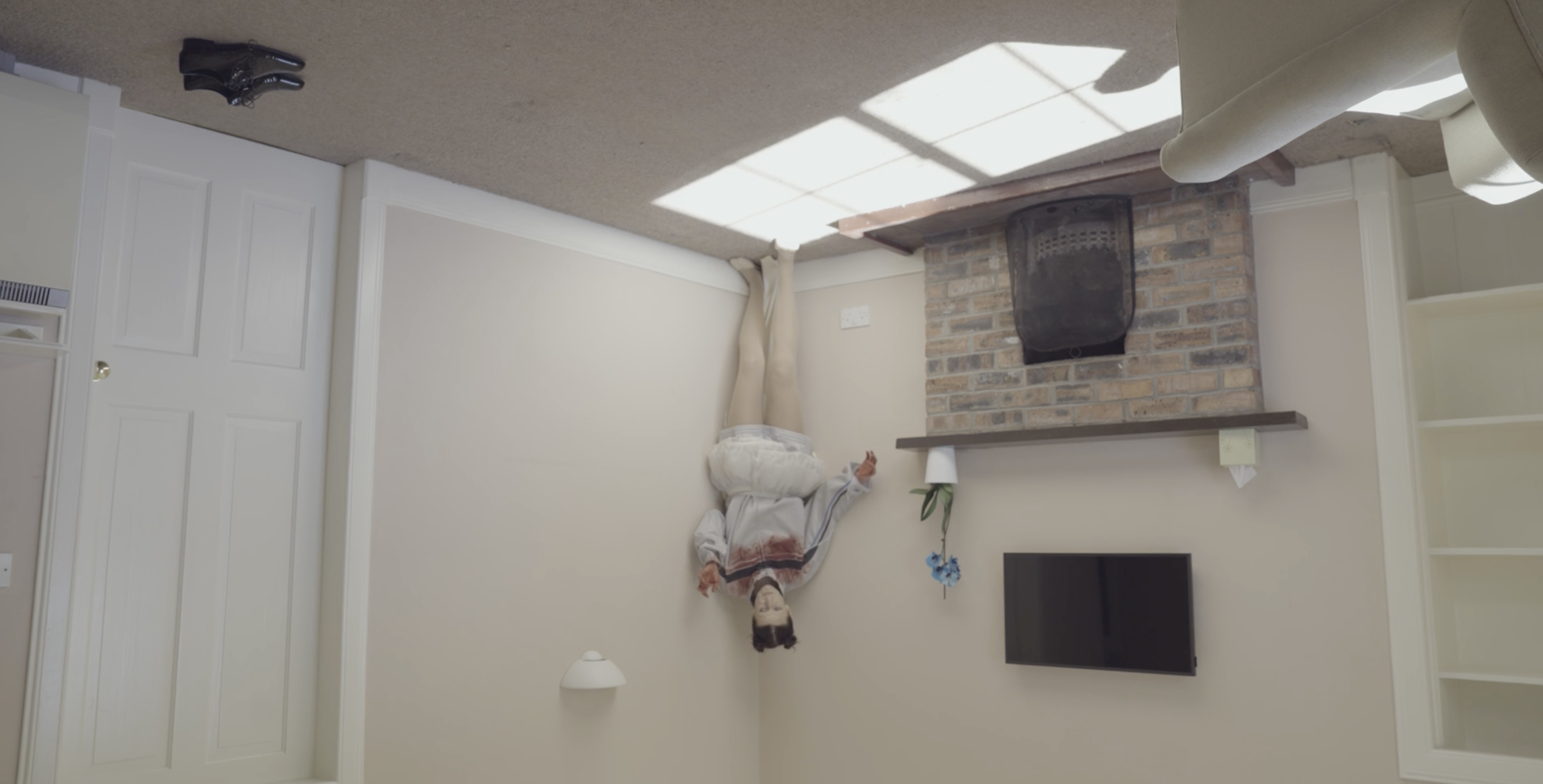
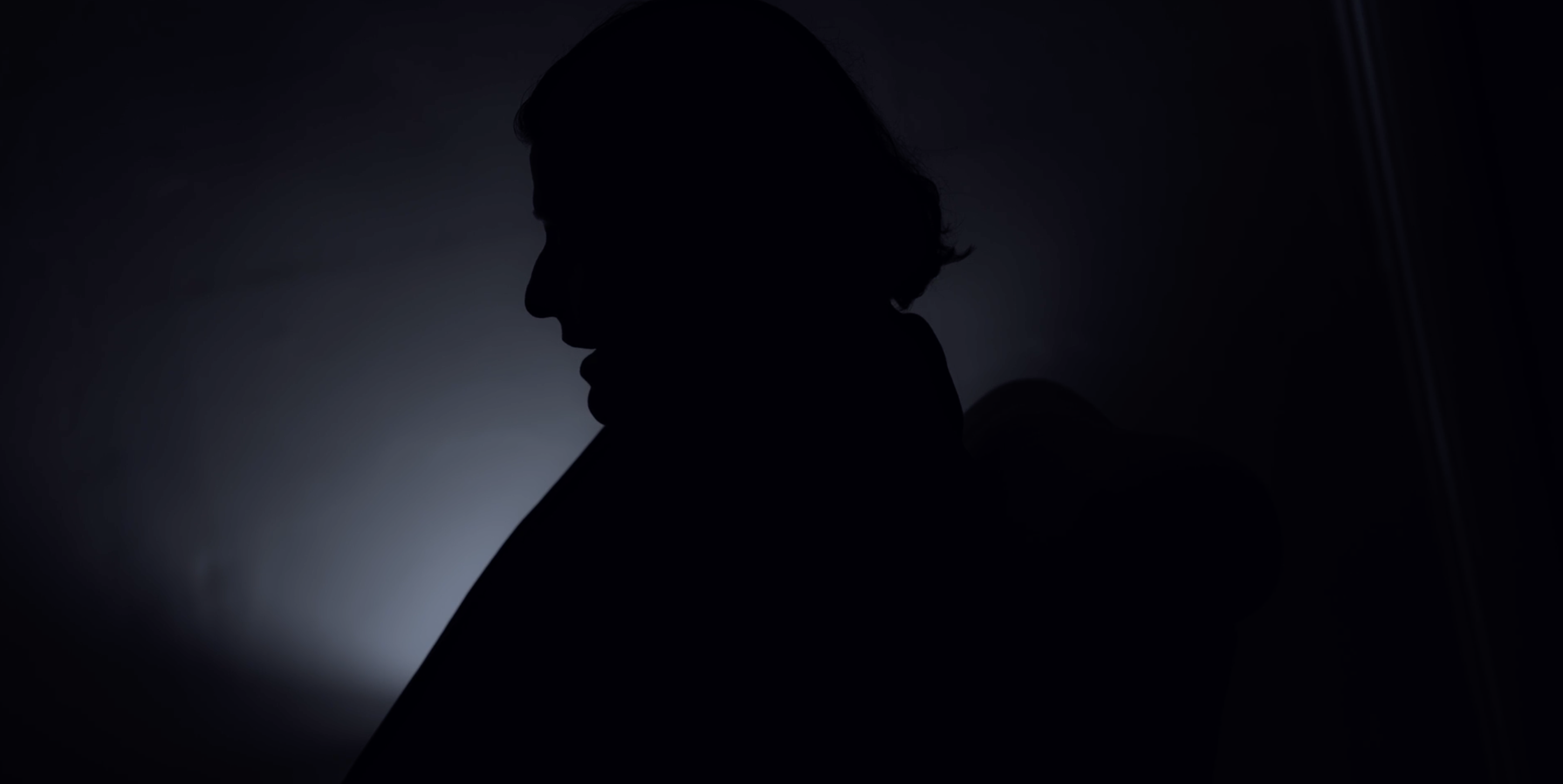
What about the film, you’ve been in music since 03 but this is your debut in terms of working with visuals, does it function as an extension of the Dramaten performance? The performance-the album-the film: the non religious holy trinity?
My desire to film goes way back, but the performance in 2019 opened the door, then it slowly progressed from there. I work closely with my stylist, who's also an art director, Nicole Walker, she also played a key role at Dramaten. Once the performance was done and the album recorded, she and I discussed what it would be like to push the project further, it got us both excited about doing a film. A movie felt like the right medium, and she sure is the right partner – the one you don't have to say more than a few words to, for she already understands your vision.
We wanted to find a way to make the viewers uncomfortable, to go places one usually avoids, consciously put pressure on where it hurts. And to me, doing that means going via horror.
I don't feel like you’re the type of artist who sends people off to the uncomfortable for the sake of being uncomfortable, but rather “I want you to discover something of yourself, please go dwell in this feeling and see where it brings you.”
Exactly. It's not for the entertainment of being horrific. The movie is supposed to be an equally therapeutic experience.
You mentioned earlier that you carry this mark on you, whereas in the film, one of my favorite sequences is when we see you biting yourself in the arm, again and again — is there any chance these two have a resemblance?
Exactly, that's the mark. It symbolizes one of my most vivid childhood memories. I was at a funeral, probably my first one ever, around five-six years old, finding it so difficult when looking at all of the adults around me who were really holding it together in order to not cry. It was such a bizarre scene to my childhood eyes. I remember finding their behavior so strange and foreign, but still I did the same – I swallowed my tears and left feeling affectionate and sincerely sad. My first reaction to keep it together that day was to bite myself in the arm. I did so almost unconsciously, but it stopped the tears.
Today, I view the mark as a symbolic translation of our modern day -disease, the result of an innocent child’s behavior who naively adopts the pattern of her surroundings, while our social environment leaves us feeling rather numb. It's no longer common to give ourselves time for grief, we diminish our minds – it's a scary path.
One that we can wake up from if we dare to acknowledge its existence? If so, I’m planning on dwelling in it, on 28th of March, at ca 8PM, on 233 Butler Street, New York, to be exact.
It’s going to be so special to see people perceive the album live. Maybe we can meet up when I'm in New York.
Tickets on you? Red wine on me.
